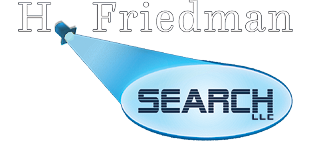In my last few writings, I have been accentuating my process of opportunistic hiring and the benefits to both you (the candidate) as well as the hiring managers. It is the best of both worlds. But I do not want to be laborious. Now I want to share with you the difference in interviewing techniques when you are fortunate enough to find yourself in a position of interviewing for an opportunistic hiring situation. You should be familiar with the best practices for opportunistic hiring success.
Your First Date
After I can set up an interview with one of the firms I represent, I always do a preparation call with my candidates. This is my first step in best practices for opportunistic hiring. These preparation calls are not to share questions that a manager might ask, but it is to answer all questions or concerns a candidate might have before their interview. Invariably, one of the first questions always is how to manage compensation questions when they arise. That is an easy one. They will not arise on the first interview. The first interview is one similar to a first date. You both want to get to know each other a little better, to determine if a second date (in this case a follow up interview) is warranted.
Your Mindset Is One Of The Most Important Best Practices For Opportunistic Hiring
The next series of questions will pertain to what the manager expects from their next hire. Again, that is a simple answer as well. They are not expecting anything as this is an opportunistic situation. It’s up to you as the candidate to share what you can bring to that firm, and this is the crux of today’s blog. Here is where we have our second of the best practices for opportunistic hiring: the mindset of the typical candidate must be altered. In a typical hiring process, the questions are generated from the manager to the candidate to see if they are a fit for the position they are trying to fill. They are extremely aware of their needs as they have given a recruiter or posted on a social network that they are actively looking for candidates with the following qualifications. When interviewing for a non-opportunistic hiring, the candidate knows what the job description is and the needs they are trying to fill since they have someone that has left, or they are looking to expand.
Best Practices For Opportunistic Hiring On What To Share
In our scenario, there are no expectations of the hiring manager as they do not have a current position to fill but will create a position under the right circumstances. That is what opportunistic hiring is all about. At this point you must incorporate a third best practices for opportunistic hiring. You have the opportunity to share with a hiring manager because they should hire you. Share what you can bring to them in new business opportunities, how you can help them expand their back office or…whatever else you’d like to share. You are the creator of the opportunity! With this as the mindset, you get to tell them what you can do and do not expect them to ask you what the firm is looking for, as there is no immediate need. You must, and I repeat must show them what you can do for them. That is the purpose of the first interview. So, how do you do that? In your mind you should have a simple business plan that you can convey over the phone. For example, telling them in specifics what you can do will certainly pique their interest. If you are using a recruiter that has done a good job, it will be easy for you to fill-in the missing pieces. If you are going this alone, a more elaborate plan will need to be conveyed. Plan on at least discussing the first six to twelve months of a new position in depth and share what your growth scenario would look like as well. A realistic growth period would be the next three to five years after the first 18 month ramp up. Opportunistic hiring puts you in control. Make the most of it when you are able to discuss a new position with these best practices for opportunistic hiring.
Conclusion
If you would like to discuss your options, please reach out for a confidential conversation at 760-477-1284 or email at [email protected]. He can also be reached on LinkedIn. Subscribe to our monthly newsletter here, which is a compilation of our weekly blogs, so you never miss one. You can find our listing in the “supplier and services” section of the Red Book under the title of “executive recruiting”.
About Harlan Friedman, JD & Founding Member, H. Friedman Search LLC. Harlan is a thirty-year veteran Public Finance Banker turned recruiter who specializes in the placement of all levels Public Finance Bankers, Healthcare Bankers, Municipal Advisors, Compliance Officers, Issuers, and Bond Counsels.

